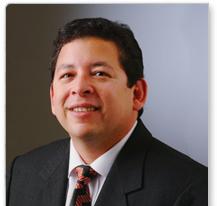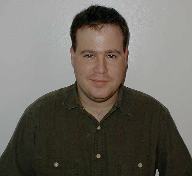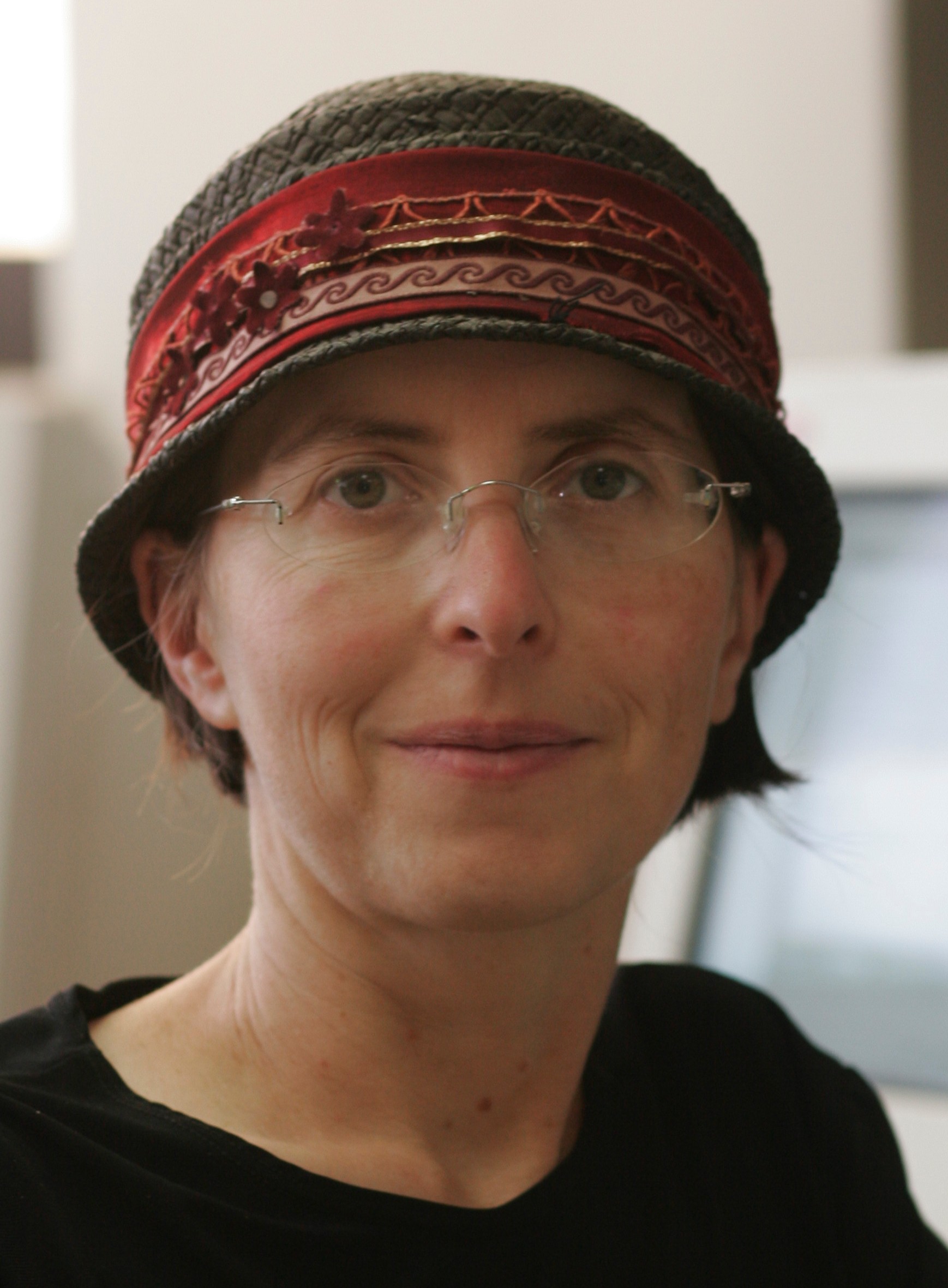|
Using
Agents and Autonomic Computing to Build Next Generation Seamless Mobility
Services
Dr. John Strassner
Motorola Fellow and Vice President
Autonomic Research Motorola Labs
Abstract
Next generation networks seek to integrate wide-area and
local-area wireless and wired systems in order to provide seamless services to
the end user, providing freedom of movement between metropolitan/enterprise and
indoor/outdoor coverage while maintaining continuity of applications
experience. Seamless Mobility, and its vision of seamless service delivery,
requires significant changes to existing wired and wireless network management
systems. Seamless Mobility is an experiential architecture, predicated on
providing mechanisms that enable a user to accomplish his or her tasks without
regard to technology. This talk will describe a novel autonomic architecture
that uses a variety of different types of agents to synthesize knowledge about
the environment, the context of users and their service and resource needs, and
the capabilities and constraints placed on the network at any given time.
Agents act according to a unique context-aware policy
governance approach, and work autonomously to orchestrate system behavior
according to business goals. This talk will conclude with a summary of research
directions at Motorola Labs and future work to be undertaken.
 John Strassner is a Motorola Fellow and Vice President, where
he directs Autonomic Networking and Communications at Motorola Research Labs. He is
also responsible for directing policy management and knowledge engineering.
Previously, John was the Chief Strategy Officer for Intelliden
and a former Cisco Fellow. John invented DEN (Directory Enabled Networks) and
DEN-ng as a new paradigm for managing and
provisioning networks and networked applications. Currently, he is the Chairman
of the Autonomic Communications Forum, the Vice-Chair of the Autonomics and Reconfigurability working group of the WWRF, and the past
chair of the TMF's NGOSS metamodel,
policy, and Shared Information and Data modeling work groups. He is also active
in the ITU, OMG, and OASIS.
John Strassner is a Motorola Fellow and Vice President, where
he directs Autonomic Networking and Communications at Motorola Research Labs. He is
also responsible for directing policy management and knowledge engineering.
Previously, John was the Chief Strategy Officer for Intelliden
and a former Cisco Fellow. John invented DEN (Directory Enabled Networks) and
DEN-ng as a new paradigm for managing and
provisioning networks and networked applications. Currently, he is the Chairman
of the Autonomic Communications Forum, the Vice-Chair of the Autonomics and Reconfigurability working group of the WWRF, and the past
chair of the TMF's NGOSS metamodel,
policy, and Shared Information and Data modeling work groups. He is also active
in the ITU, OMG, and OASIS.
He has also
authored two books (Directory Enabled Networks and
Policy Based Network Management), contributed chapters for three other books,
and has over 147 refereed conference and journal publications. John is a TMF
Distinguished Fellow, a member of the TMF Advisory Board, and a member of the
Industry Advisory Board of the University
of California Davis. John
is also an associate professor for the Waterford Institute of Technology, Waterford, Ireland.
Multiagent Systems for Autonomic Computing
Dr. Jeffrey O.
Kephart
IBM Research
Abstract
Autonomic computing is a grand-challenge vision in which
computing systems manage themselves in accordance with high-level objectives
from humans. There is widespread acceptance within the IT industry that
building autonomic computing systems is the only way to avert a looming systems
management complexity crisis. At IBM Research, we are exploiting agent concepts
and principles to achieve autonomic behavior in small datacenter prototypes
involving a few dozen servers. Marketplace realities lead us ineluctably to a
multi-agent approach to self-management, in which individual resources and
management products are cast as intercommunicating adaptive agents. Utility
functions play a key role in defining the high-level objectives, and novel
machine learning algorithms are used to help satisfy those objectives. Even in
settings with just two or three agents, emergent behaviors can be a challenge,
with adaptive agents sometimes working at cross purposes, each trying
independently to address the same underlying problem. After describing our
experience with agents in the service of autonomic computing, I will outline
several research challenges that are likely to be of interest to the agents community. Quite broadly, agent architectures and
algorithms have a vital role to play in meeting the grand challenge of
autonomic computing. Conversely, autonomic computing is a rich and inspiring
application domain for the AAMAS community, raising many new and interesting
research problems -- solutions to which may have enormous economic benefit.
Biography
 Jeffrey
O. Kephart manages the Agents and Emergent Phenomena group and the Tivoli and Autonomic Computing Joint Program at the IBM Thomas
J. Watson
Research Center.
He co-founded the International Conference on Autonomic Computing, and
co-authored the most frequently cited reference on autonomic computing
(according to Google Scholar).
Jeffrey
O. Kephart manages the Agents and Emergent Phenomena group and the Tivoli and Autonomic Computing Joint Program at the IBM Thomas
J. Watson
Research Center.
He co-founded the International Conference on Autonomic Computing, and
co-authored the most frequently cited reference on autonomic computing
(according to Google Scholar).
His research focuses on the application of analogies from
biology and economics to massively distributed computing systems, particularly
in the domains of autonomic computing, e-commerce and antivirus technology. His
research efforts on the design of a digital immune system and on economic
software agents have been publicized in publications such as The Wall Street
Journal, The New York Times, Forbes, Wired, Harvard Business Review, IEEE
Spectrum, and Scientific American.
Dr. Kephart received a B.S. from Princeton
University and a Ph.D. from Stanford University, both in electrical
engineering with a concentration in physics.
Robots Are Agents, Too!
Dr. Gal Kaminka
Bar Ilan University
Abstract
Recent years are seeing dramatically growing interest in
robots, side-by-side, paradoxically, with a worrisome decline in robotics work within
the autonomous agent community. This, despite the significant opportunities
enabled by viewing robots as agents. In
this talk, I will argue for such an inclusive view, by examining multi-robot
teams. From an agent perspective,
challenges in building such teams are many: Some are related to a particular
task (taskwork), and some are related to the
interactions between agents (teamwork).
For close to 15 years, researchers in agents have provided a
growing body of evidence that taskwork and teamwork
are separable, and have repeatedly demonstrated the benefits of such
separation. I will survey my group's
role in investigating this hypothesis with physical robots, the lessons
learned, and the challenges and opportunities provided by viewing robots as
agents, too.
Biography
 Gal Kaminka is a senior lecturer at
the computer science department at Bar
Ilan University (Israel). His research expertise
includes teamwork and coordination, multiagent and multi-robot systems,
behavior and plan recognition, and modeling social behavior. He received his
PhD from the University of Southern California, and spent two years as a
post-doctorate fellow at Carnegie
Mellon University.
Today, Dr. Kaminka leads the MAVERICK research group
at Bar Ilan, supervising 15 MSc
and PhD students. He was awarded an IBM faculty award and earned top places at international
robotics competitions.
Gal Kaminka is a senior lecturer at
the computer science department at Bar
Ilan University (Israel). His research expertise
includes teamwork and coordination, multiagent and multi-robot systems,
behavior and plan recognition, and modeling social behavior. He received his
PhD from the University of Southern California, and spent two years as a
post-doctorate fellow at Carnegie
Mellon University.
Today, Dr. Kaminka leads the MAVERICK research group
at Bar Ilan, supervising 15 MSc
and PhD students. He was awarded an IBM faculty award and earned top places at international
robotics competitions.
Automated Negotiation in Open Environments
Dr. Sarit Kraus
Bar Ilan University
Abstract
Agents in open environments lack a central mechanism for
controlling their behavior, and they may encounter human decision-makers whose
behavior is affected by social and psychological factors. Examples include
online markets, patient care-delivery systems; virtual reality and simulation
systems used for training and IT systems administration. As open environments
increase in number and complexity, they pose significant challenges for agent
designers. In this talk, I will discuss several research thrusts that address
some of the challenges of automated agent design and evaluation in open environments.
These agents are self-interested in the sense that they aim to fulfill their
own goals as efficiently as possible. However, they may still cooperate if such
behavior can serve either their short- or long-term interests or goals. I will
present algorithms for representing and learning agents' goals and capabilities
that have been evaluated under diverse settings varying in the extent to which
agents are cooperative or competitive. Lastly, I will describe Color Trails, a
game infrastructure for investigating negotiation strategies in open
environments. Color Trails provides a realistic but modeling-tractable setting
that facilitates the design and evaluation of automated decision making by
agents.
Biography
 Sarit Kraus is a
Professor of Computer Science at Bar-Ilan University
and an adjunct Professor at the Institute for Advanced Computer Studies at the University of Maryland,
College Park.
Her research interests include multi-agent systems, especially
negotiation and cooperation among agents, open agent environments, learning and information
agents, ecommerce, formal models for agency, personalization and optimization
of complex systems. In 1995 Kraus was awarded the IJCAI Computers and Thought
Award (the premier award for a young AI scientist). In 2001 she was awarded the
IBM Faculty Partnership Award and in 2002 she was elected as a
AAAI fellow. In 2007 she was awarded the ACM SIGART Agents Research award and her paper with Prof. Barbara Grosz won the IFAAMAS influential paper award.
Sarit Kraus is a
Professor of Computer Science at Bar-Ilan University
and an adjunct Professor at the Institute for Advanced Computer Studies at the University of Maryland,
College Park.
Her research interests include multi-agent systems, especially
negotiation and cooperation among agents, open agent environments, learning and information
agents, ecommerce, formal models for agency, personalization and optimization
of complex systems. In 1995 Kraus was awarded the IJCAI Computers and Thought
Award (the premier award for a young AI scientist). In 2001 she was awarded the
IBM Faculty Partnership Award and in 2002 she was elected as a
AAAI fellow. In 2007 she was awarded the ACM SIGART Agents Research award and her paper with Prof. Barbara Grosz won the IFAAMAS influential paper award.
She has published over 200 papers in leading journals and major
conferences and is an author of the book Strategic Negotiation in Multiagent
Environments(2001)
and a co-author of a book on Heterogeneous
Active Agents (2000); both published
by MIT Press. Kraus was a program co-chair of the Fourth
International Conference on Multiagent Systems (ICMAS), 2000 and was the
general co-chair of the International Conference on Autonomous Agents and Multiagent Systems
(AAMAS) 2005.
Kraus is
a member of the board of directors of the International Foundation for Autonomous Agents and Multiagent Systems (IFAAMAS).
She is an associate editor of the Artificial
Intelligence Journal and the Annals of Mathematics and Artificial Intelligence
Journal, and serves on the editorial boards of the Journal of Autonomous Agents
and Multi-Agent Systems, the Journal of Applied Logic, and the Journal of Web Semantics.
She is currently conducting joint projects with researchers
from the University of Maryland at College Park, Harvard University,
Stanford Research Institute, Tel-Aviv University, Hebrew
University, University
of Southern California, and University of Liverpool.
|
|











